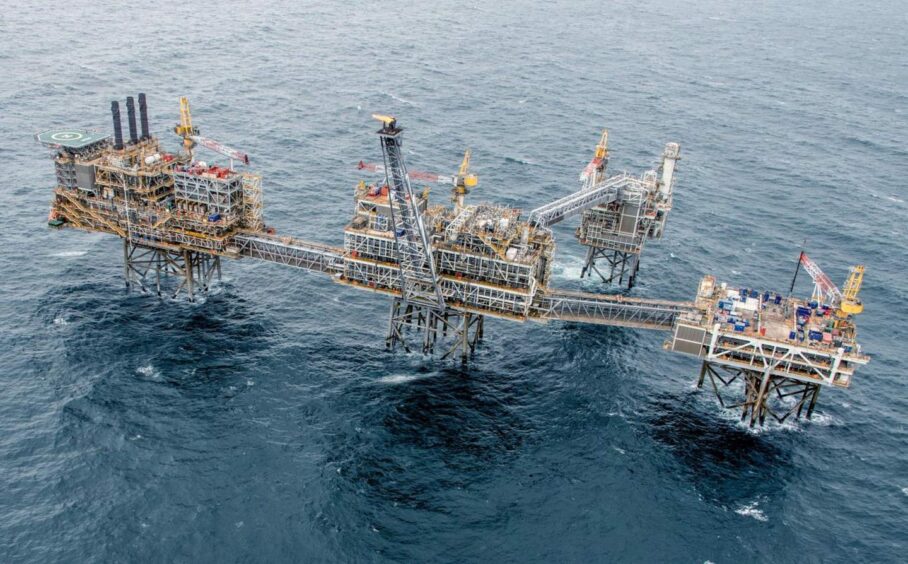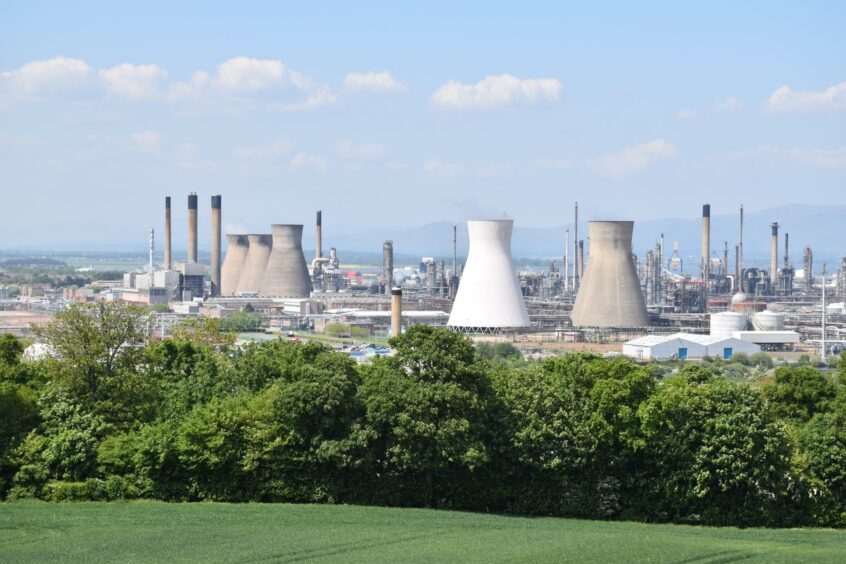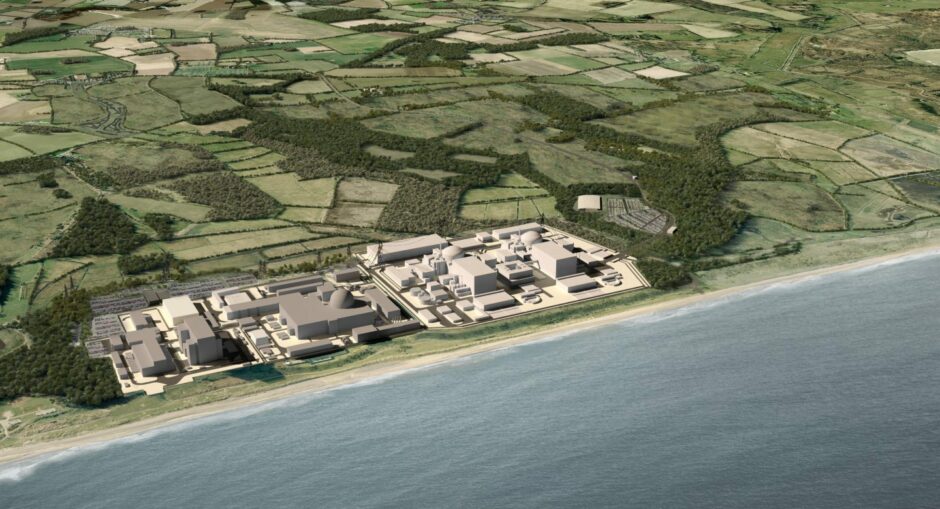
Strain in the relationship between China and the UK has raised concerns about whether Chinese state-linked companies like CNOOC pose a potential threat to the UK’s energy security.
The UK and the EU have both taken recent actions against Chinese groups, ranging from accusations of cyberespionage to dominating energy supply chains.
Against a backdrop of the Russian invasion in Ukraine, the role of foreign companies controlling energy infrastructure is coming under scrutiny. This is especially true for the UK, as the last decade has seen Chinese companies gain a larger presence in the North Sea.
“It is extraordinarily dangerous to allow Chinese companies which are ultimately controlled by the CCP to become stakeholders of critical national infrastructure,” former member of the International Relations and Defence Select Committee and currently sitting member of the Joint (HOC/HOL) Committee on Human Rights Lord Alton of Liverpool told Energy Voice.
“If Putin’s war in Ukraine has taught us anything, surely it is the folly of putting your country’s energy needs into the hands of hostile states. Confused and contradictory policy decisions by the UK Government need to be urgently replaced by a focus on the implications of such deals on our national security and strong political resolve to veto them.”
Potential threats
While the prospect of out-and-out conflict between the two countries is unlikely, with China having the potential to affect energy supplies to the UK, managing director of security consultancy IPPSO and former head of the National Counter Terrorism Security Office (NaCTSO) Chris Phillips noted: “Just the threat alone is something.”
What is more concerning, he said, is the prospect of Chinese corporate espionage: “What they’ve done over the past thirty years is steal Western secrets and they’ve gotten so good at it they’ve gotten ahead of us.”
Compared to the West, China has displayed a tendency to take a more integrated, long-term approach to its foreign policy.
Cyber and digital consultant at security consultancy Another Day, Sneha Dawda, said: “Chinese foreign policy has a very cohesive strategy in terms of how it integrates its economic goals versus traditional statecraft goals. They don’t see their goals to do with energy imports and exports as separate from their idea of grey zone activity like cyberattacks and cyber statecraft.”
However, Chinese businesses are exactly that – businesses. Even if relations between two countries deteriorate, they still represent sources of revenue for both sides.
Dawda said: “The underlying question is if China owns stakes in North Sea oilfields, would it seek to self-sabotage? Would they really seek to shoot themselves in the foot from an economic standpoint? Because that is obviously to some extent a profit-making enterprise for them.”
Chinese ownership
State-owned China National Offshore Oil Corporation (CNOOC) acquired Nexen in 2013 for £9.4 billion, the largest business takeover by a foreign company at the time.
It currently operates the major Buzzard field, holding a 43.2% stake in it, as well as the Golden Eagle, Scott and Telford fields.
Petroineos, formed when Ineos sold a 50% stake in itself to PetroChina in 2011, operates Scotland’s sole refinery at Grangemouth.
China’s sovereign wealth fund, China Investment Corporation (CIC), owned 49% of Neptune Energy, but has since made an exit via Eni’s takeover of Neptune.
Sinopec was involved in the North Sea through its joint venture with Repsol, but the Spanish company bought out its Chinese partner in a $2.1bn deal in 2023.
China Oilfield Services Ltd (COSL), majority owned by CNOOC, has also made inroads into the North Sea, though as a services company it does not own any production assets. Last year, the group announced plans to expand headcount at its Aberdeen office.
The company currently operates three drilling rigs in the North Sea, but has plans to increase that number this year.
Phillips said that China has spent years “buying up specific companies that have specific knowledge and then importing them into China. And once they’ve bought the company, they can do what they like with it”.
Mounting tensions
The issue is not a new one – politicians have warned that Chinese companies working in the North Sea pose a threat to the UK’s energy security. In 2023, chairman of the cross-party policy group Inter-Parliamentary Alliance on China (IPAC) Iain Duncan Smith said the government was “failing to take seriously” the energy security threat posed by the involvement of China-backed groups in the UK’s oil and gas sector.
But the issue has heated up recently, in part due to the UK’s Government Communications Headquarters (GCHQ) accusing a China-linked cybersecurity threat, APT31, of targeting politicians in 2021, with four specifically cited figures having been critical of China in the past.
In addition, the body said that another China-connected group compromised the UK Electoral Commission between 2021 and 2022. These threat actors likely accessed and exfiltrated data from the Electoral Register, potentially covering up to 40 million voters.
This led to two individuals and a state-linked Chinese company being sanctioned, Deputy Prime Minister Oliver Dowden told the House of Commons recently.
In addition, a potential Mingyang turbine factory in Scotland has raised similar concerns about damaging the UK’s supply chain in favour of Chinese-made components.
Beyond the UK, the European Union has announced an investigation into subsidies paid to Chinese wind turbine suppliers involved in wind parks in Spain, Greece, France, Romania and Bulgaria.
The bloc’s competition chief Margrethe Vestager warned that Chinese suppliers could squeeze European companies out of the bloc’s wind energy supply chain.
Potential actions
However, the question remains around what action the UK would take against Chinese companies operating in the North Sea.
“We’re stepping on new ground here, that’s the issue here,” Phillips said. “How we go about extricating these companies, I don’t know, and I think that’s where the government is really struggling. The big issue is who owns what and what equipment is in what.”
Dawda added: “Given that there’s such a significant trade deficit between the UK and China, it was a significant step when the UK, alongside the US, called out China for APT 31’s activities. It’s often a case of needing to protect the trade relationships.”
The UK Government has removed Chinese companies from the country’s infrastructure in the past.
China General Nuclear (CGN) was originally a partner in the Sizewell C nuclear plant project, holding a 20% stake with France’s EDF holding the other 80%.
In late 2022, the UK Government bought CGN’s stake in the project, investing £700m in the development, matched by EDF, for a 50/50 partnership. Reports suggested £100m of the figure went to CGN.
The government is now searching for private investment in the project to dilute its stake.
Chinese telecoms giant Huawei fell foul of government sanctions in 2020 as its The UK banned its equipment from the the country’s 5G infrastructure.
Not only were companies not allowed to use their equipment in future developments, they had to retroactively remove and replace their kits from existing infrastructure by the end of 2027.
Philips noted: “What do they do, do they just make them sell? But they’ve already got their fingers inside the pie. That will be interesting to see, they may say that company can’t work in the UK unless it sells its Chinese ownership.”
Re-evaluation
However, any potential action against China may not come soon. With an election due by January 2025 at the latest, a decision may have to wait until the formation of a new government.
There is also a chance that the issue may resolve itself – CNOOC has previously floated a sale of its UK North Sea, with Norway’s Equinor reported as a potential buyer.
The company has plans to divest its assets, but put them on hold in early 2023 after initial offers didn’t meet expectations, with a sale valued as high as $3bn.
Industry rumours pointed to the sale resuming once conditions improve, with 2024 deemed a potential restart date.
However, even if CNOOC were to sell its stake, it doesn’t solve the bigger problem. For decades, the UK has pursued foreign direct investment, selling stakes in numerous critical industries.
China’s growing assertiveness against a backdrop of the Russian invasion of Ukraine may force the UK to re-evaluate this strategy as it begins to erode its national and energy security.
“The issue is around whether or not we continue down this mass globalisation of UK goods and services,” Dawda said. “It is really an inflection point of whether to keep going with that approach or to use this as an opportunity to readjust.
“The UK government needs to build a better understanding of its dependencies and from that point forward, think about long-term strategy.”
When contacted, CNOOC declined to comment, while Petroineos, COSL and Mingyang did not respond to requests.

 © Supplied by Chris Phillips
© Supplied by Chris Phillips © Supplied by Ineos
© Supplied by Ineos © Supplied by EEEGR / EDF
© Supplied by EEEGR / EDF © Supplied by Sneha Dawda
© Supplied by Sneha Dawda